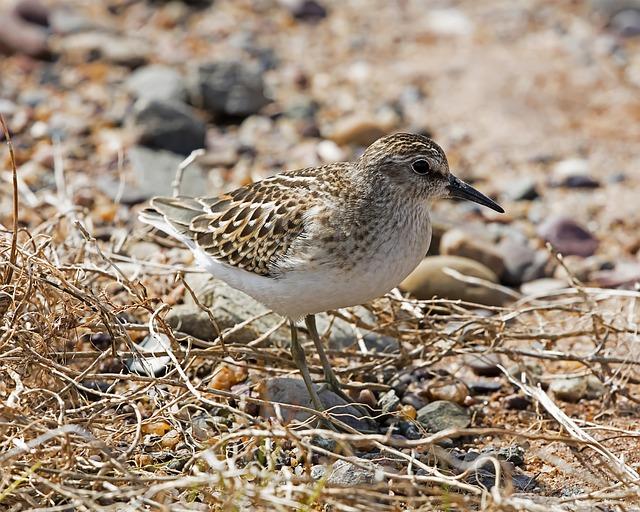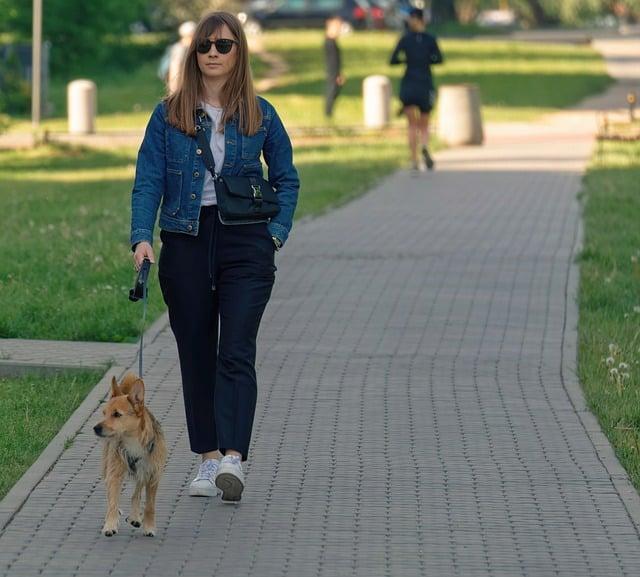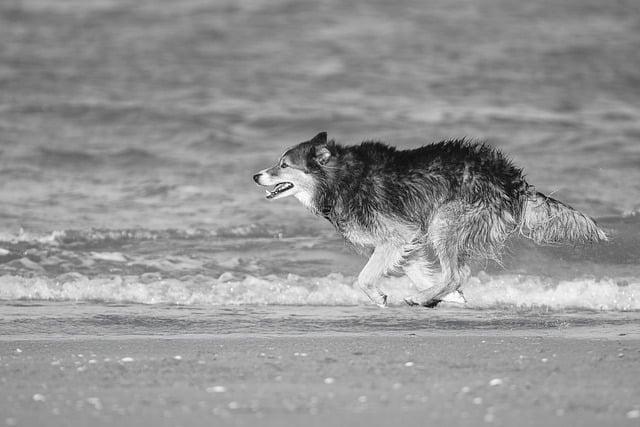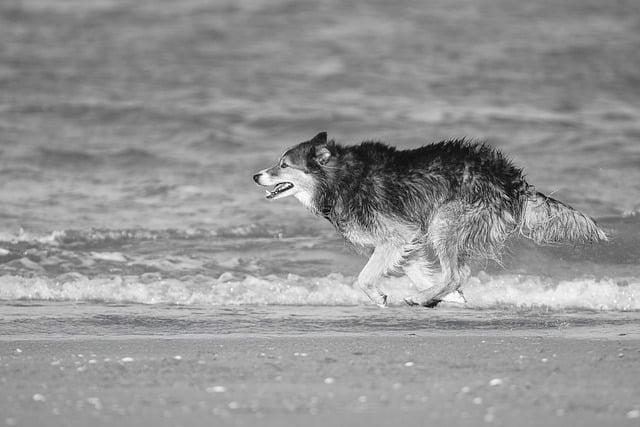In a quiet neighborhood, a gentle giant named Max roamed the streets. A Great Dane with a heart as big as his stature, Max was known for his calm demeanor and friendly nature. While other dogs barked and lunged, Max greeted everyone with a wagging tail and soft eyes. Families flocked to him, drawn by his serene presence. If you’re seeking a big dog that embodies loyalty without aggression, consider the Great Dane. With their affectionate temperament, they prove that size doesn’t dictate behavior—love does. Choose wisely; choose Max.
Contents
- Understanding the Temperament of Large Dog Breeds
- Evaluating the Best Non-Aggressive Big Dogs for Families
- Training and Socialization Techniques for Gentle Giants
- Choosing the Right Environment for Your Large, Gentle Companion
- Q&A
Understanding the Temperament of Large Dog Breeds
When considering large dog breeds, understanding their temperament is crucial for potential owners. Many people assume that size correlates with aggression, but this is a misconception. In reality, numerous large breeds are known for their gentle and friendly nature, making them ideal companions for families and individuals alike. By focusing on the right breed, you can find a large dog that embodies loyalty and affection rather than aggression.
Several factors contribute to the temperament of large dog breeds, including genetics, socialization, and training. **Genetics** play a significant role in determining a dog’s natural disposition. Breeds like the **Labrador Retriever** and **Golden Retriever** are renowned for their friendly and approachable demeanor, often ranking among the least aggressive large dogs. These breeds have been selectively bred for their temperament, making them excellent choices for those seeking a gentle giant.
**Socialization** is another critical aspect that influences a dog’s behavior. Early exposure to various environments, people, and other animals can help large breeds develop a well-rounded personality. For instance, the **Newfoundland** is known for its calm and patient nature, especially when properly socialized from a young age. This breed is often referred to as a “gentle giant,” showcasing how positive experiences can shape a dog’s temperament.
Lastly, **training** plays an essential role in a dog’s behavior. Consistent, positive reinforcement training can help mitigate any potential aggressive tendencies, regardless of the breed. Large breeds like the **Bernese Mountain Dog** thrive on companionship and respond well to training, making them less likely to exhibit aggressive behavior. By investing time in training and building a strong bond with your dog, you can ensure a loving and peaceful relationship with your large canine companion.
Evaluating the Best Non-Aggressive Big Dogs for Families
When considering a large dog for your family, it’s essential to focus on breeds known for their gentle temperament and compatibility with children. Many big dogs possess a calm demeanor and are incredibly affectionate, making them ideal companions for families. Here are some breeds that stand out for their non-aggressive nature:
- Golden Retriever: Renowned for their friendly and tolerant attitude, Golden Retrievers are not only intelligent but also eager to please. Their playful nature and patience make them perfect for families with kids.
- Labrador Retriever: Labs are famous for their sociable and outgoing personality. They thrive on human interaction and are known for their gentle disposition, making them excellent family pets.
- Newfoundland: Known as gentle giants, Newfoundlands are incredibly sweet-natured and protective. Their calm demeanor and love for children make them a fantastic choice for families seeking a large, non-aggressive dog.
- Bernese Mountain Dog: With their affectionate nature and loyalty, Bernese Mountain Dogs are great companions. They are known for their patience and gentleness, making them suitable for families with children.
In addition to breed characteristics, it’s crucial to consider the individual dog’s upbringing and socialization. A well-socialized dog, regardless of breed, is more likely to exhibit friendly behavior. Early exposure to various environments, people, and other animals can significantly influence a dog’s temperament. Training and positive reinforcement also play a vital role in shaping a dog’s behavior, ensuring they grow into a well-mannered family member.
When selecting a large dog for your family, it’s also important to assess your lifestyle and living situation. Some breeds may require more exercise and mental stimulation than others. Ensuring that you can meet these needs will contribute to a happy and well-adjusted pet. Additionally, consider adopting from shelters or rescue organizations, where you can find many loving big dogs looking for a forever home. These dogs often come with a history of socialization and training, making them excellent candidates for family life.
Ultimately, the best non-aggressive big dog for your family will depend on your specific needs and environment. By focusing on breeds known for their gentle nature and ensuring proper training and socialization, you can find a loyal companion that will enrich your family’s life. Remember, the bond between a child and a dog can be incredibly rewarding, fostering empathy, responsibility, and unconditional love.
Training and Socialization Techniques for Gentle Giants
When it comes to training gentle giants, consistency and positive reinforcement are key. These large breeds, often characterized by their calm demeanor, respond exceptionally well to methods that emphasize rewards over punishment. Incorporating treats, praise, and playtime into training sessions can significantly enhance their learning experience. Establishing a routine helps these dogs understand expectations, making them more eager to please their owners.
Socialization is equally crucial for big dogs, as it helps them develop confidence and reduces the likelihood of fear-based aggression. Early exposure to various environments, people, and other animals can shape a well-rounded temperament. Consider the following strategies to promote effective socialization:
- Group Classes: Enroll your dog in obedience classes where they can interact with other dogs and people in a controlled setting.
- Playdates: Arrange playdates with other friendly dogs to encourage positive interactions.
- Public Outings: Take your dog to parks, pet-friendly stores, and community events to expose them to different sights and sounds.
In addition to socialization, mental stimulation plays a vital role in the well-being of large breeds. Engaging their minds can prevent boredom and destructive behaviors. Activities such as puzzle toys, scent games, and obedience training can keep your gentle giant mentally sharp and satisfied. Incorporating these elements into their daily routine not only strengthens your bond but also fosters a calm and balanced demeanor.
Lastly, patience is essential when working with big dogs. Their size can be intimidating, but with the right approach, they can become loving companions. Celebrate small victories during training and socialization, as these moments build confidence and reinforce positive behavior. Remember, a well-trained and socialized gentle giant is not just a joy to have at home but also a wonderful ambassador for their breed in the community.
Choosing the Right Environment for Your Large, Gentle Companion
When considering a large, gentle dog, the environment you provide plays a crucial role in their overall well-being and happiness. These dogs thrive in spaces that allow them to move freely and comfortably. A home with ample room for them to roam, play, and relax is essential. Think about open areas where they can stretch their legs, whether it’s a spacious backyard or nearby parks. The more space they have, the more they can engage in natural behaviors, which is vital for their mental and physical health.
Additionally, the environment should be safe and secure. Large dogs, despite their gentle nature, can be curious and adventurous. Ensuring that your yard is fenced and free from hazards will help prevent any unwanted escapades. Consider the following safety measures:
- Install a sturdy fence that is high enough to deter jumping.
- Remove any toxic plants or chemicals that could pose a risk.
- Provide shaded areas to protect them from extreme weather conditions.
Socialization is another key factor in creating the right environment. Large, gentle dogs often benefit from regular interactions with other pets and people. This exposure helps them develop confidence and reduces anxiety. Look for dog-friendly spaces where they can meet other dogs, or consider enrolling them in training classes that emphasize positive reinforcement. These experiences can foster a sense of community and belonging, which is essential for their emotional health.
Lastly, consider the lifestyle of your household. Large dogs often require a balance of activity and relaxation. If you have a busy household, ensure that there are quiet spaces where your dog can retreat when they need downtime. Incorporating a routine that includes regular exercise, playtime, and training sessions will help them thrive. By thoughtfully designing their environment, you can create a nurturing space that allows your gentle giant to flourish.
Q&A
- What breeds are considered the least aggressive big dogs?
Some of the least aggressive big dog breeds include:
- Golden Retriever
- Labrador Retriever
- Newfoundland
- Bernese Mountain Dog
These breeds are known for their friendly and gentle nature, making them great companions for families and individuals alike.
- Are big dogs inherently aggressive?
No, big dogs are not inherently aggressive. Aggression in dogs is influenced by various factors, including genetics, training, and socialization. Many large breeds can be loving and gentle when properly raised and trained.
- How can I ensure my big dog is not aggressive?
To promote a non-aggressive demeanor in your big dog, consider the following:
- Early socialization with different people and environments
- Consistent and positive training methods
- Regular exercise to release pent-up energy
- Providing a stable and loving home environment
These practices can help cultivate a well-adjusted and friendly dog.
- What should I do if I encounter an aggressive big dog?
If you encounter an aggressive big dog, remain calm and avoid direct eye contact. Do not run away, as this may trigger a chase response. Instead, back away slowly and seek safety. If the situation escalates, contact animal control for assistance.
choosing the least aggressive big dog can lead to a harmonious home environment. Breeds like the Great Dane and Newfoundland exemplify gentle giants, proving that size doesn’t dictate temperament. Consider these loving companions for your family.

大家好,我是彼得潘,專業的手法身體治療師。我喜歡探索和研究各種主題,並透過與人工智慧的合作分享專業、實用、有趣的文章。我們定期進行人工審核,以確保內容的準確性。如果您發現文章中有任何不準確的地方,請隨時與我們聯繫,我們會及時糾正。您可以透過 [email protected] 與我們聯繫。



